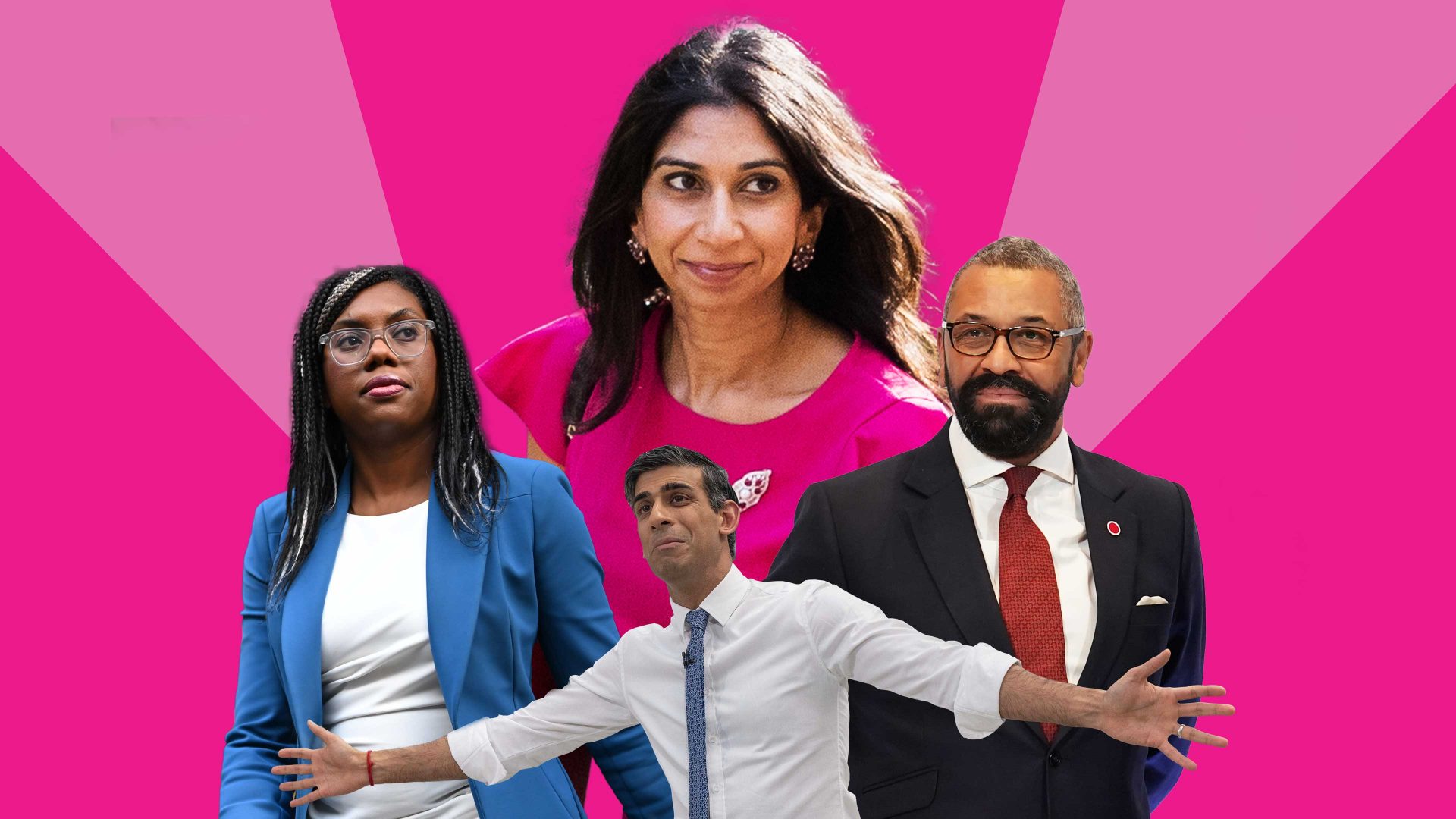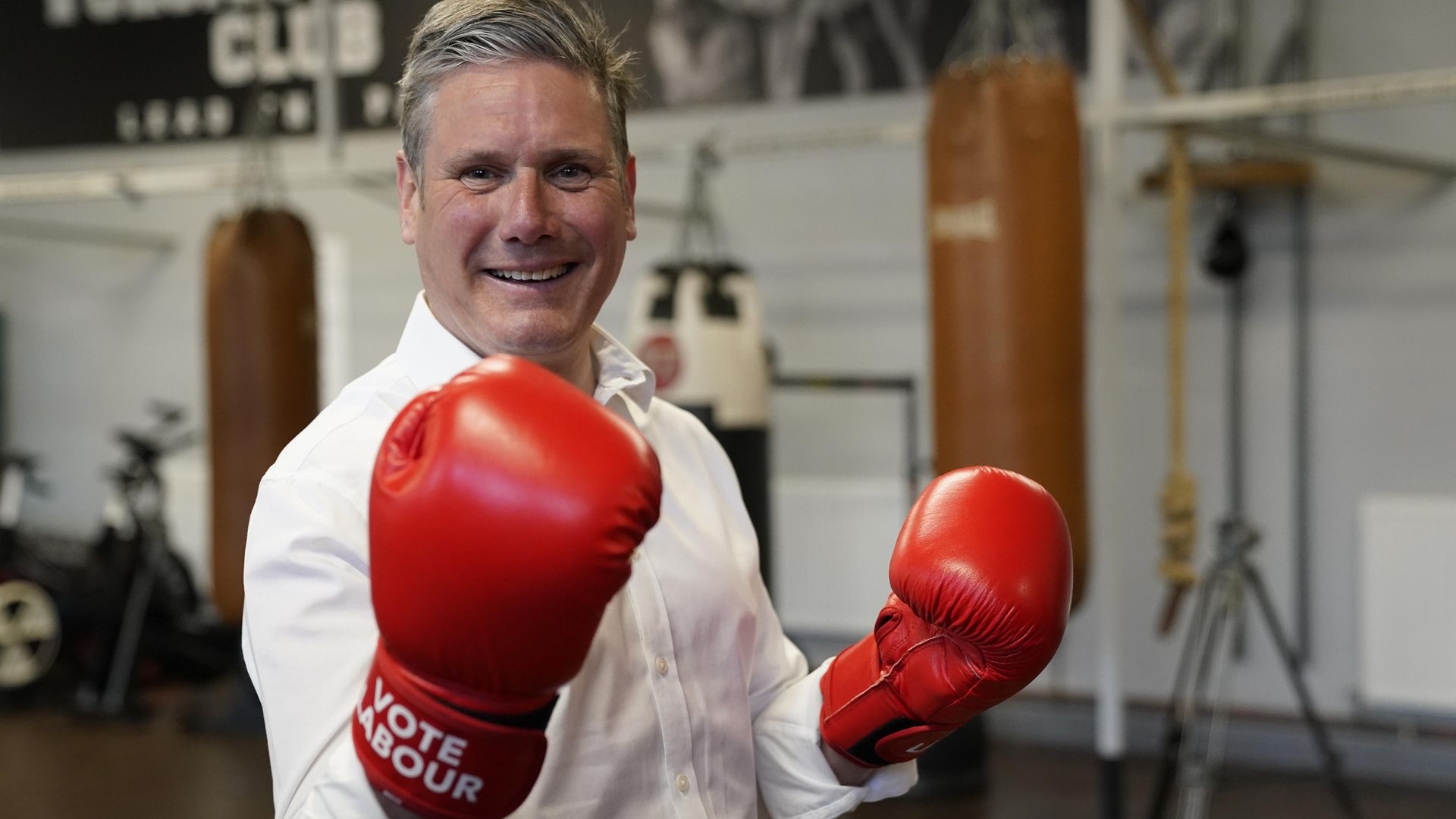At a recent conference in Totnes, where I spoke to a majority white audience, I pointed out that many people of colour were tired of the assumption that they were on the left and Labour-supporting. Tired of being thought of as oppressed, suffering, longing for some utopian socialism.
I said that what many people of colour want, maybe always have wanted, is a kind of culturalism: that of thriving; of doing their best and getting the best. The handful of people of colour in the audience applauded.
Recently, a guy of Ibo and Jamaican descent got into a big argument with me about Putin. He thinks that the Russian president is right and has to protect his borders against Nato, against western encroachment.
Quoting something that Putin said about Kyiv not really needing to exist, I pointed out that Hitler had also said the same thing about Leningrad, now St Petersburg. And Putin’s home town.
This guy, half my age, said that I just didn’t get it. And that if he was “a Yank” he would vote for Donald Trump.
Among some of the people under 40 that I know, I’m not only “auntie”. I’m “Commie Bonnie”. Since I’ve always been one who believes that if you really crave like-minded company, go talk to your mirror, I tend to look out for views that differ from my own.
So the phenomenon of young people of colour on the right and the far right – and being vociferous about it – is something that I need to understand. But others see them and react with disbelief.
Go on: Scroll through Twitter and read any number of people saying that Suella Braverman, her predecessor Priti Patel or the prime minister Rishi Sunak should naturally be more sympathetic to the plight of migrants. With “naturally” being the operative word.
Why? Is it because they, too, are people of colour, the children of immigrants?
A friend of mine even asked why “they wanted to pull up the ladder”.
The assumption is this: That people of colour, no matter what class or educational level, no matter how they feel about themselves and the world, should have some sort of blanket, universal, innate feeling about other people of colour.
The Tories don’t subscribe to this and maybe that goes a long way to explaining why they have done better than Labour with the business of diversity at the top of government.
The thing is that the right and centre right exploit something that we of the left and centre left too often fail to grasp: that most people don’t actually see themselves as categories. Or having solidarity with categories.
Most people don’t walk around with an “identity” buried inside themselves. Most of us are a combination of family; friends; occupation; tastes, likes and dislikes; faith or no faith.
We see someone who maybe has the same colour skin; or speaks the same language and we may have that moment of connection, empathy, But a sense of common humanity, a connection with people far away from us, is not innate. It has to be cultivated.
To be first of all for yourself and your kin and your living space – that’s the norm. The right get this and they use it.
Now a thought experiment: Imagine Winston Churchill settling down with a glass of port and a cigar to watch a movie in the Cabinet War Rooms, deep within the bunker beneath Horse Guards Parade, a stone’s throw from No 10. It is 1943 and the great war leader needs a bit of light relief.
But instead of Gunga Din or one of the many films featuring heroic “native troops” dying by the dozens for white folks, the title that appears on the screen is this: A look 80 years into the future of Great Britain.
Before the action starts, the cast list appears: There’s a man called Rishi.
A woman with the parental surnames Fernandes and Mootien-Pillay. Another woman with the first names of Olukemi Olufunto.
These all sound like names of supporting characters in traditional Empire movies; the kind of people that Brits like Churchill were raised to believe their job was to organise and save. Save them not only from outside forces – but from themselves.
So a jolly, relaxing evening in prospect for Winnie. But then the film starts rolling. And it turns out these are not supporting characters. Together with a man of west African origin called James, they are in the lead roles and occupying some of the great offices of state.
The shock of realising this would have had Churchill reaching for his brandy. Or maybe a revolver.
Because his Britain was all about so-called good chaps from so-called good families; white males educated at proper public schools; some university and a bit of military. This was, and still is to an extent, the British ruling class.
Many of this class sharpen their inheritances in debates at the Oxford Union. The chamber of the Union itself is a kind of mini-replica of the Commons, so the whole experience can be understood as a kind of preparation for rule. And the walls are covered with the faces of the mainly white men who went on to run things. People of colour on those walls are few and far between.
Whatever cruel, stupid and terrible things Rishi Sunak’s government has done, it has also done this: it has put people of colour on those walls and in the corridors of power. This is what history will record.
The group photographs of Rishi Sunak’s cabinet are a piece of history. No nation on earth with the clout and the importance of the UK, has, in proportion, this kind of line-up, this cornucopia of people of colour at the very top.
None of this means that the people the prime minister has put in those great offices of state are a template or a model. Quite the contrary.
The home secretary’s immigration policies, for example, are just plain cruel. I really don’t understand how anyone could talk about and treat a human being in the way that Braverman does. I don’t understand how anyone could be that cold-blooded.
Her Illegal Migration Bill, steamrollered into law last week, says that refugees who arrive in the UK without prior permission will be detained for 28 days and that asylum claims will be deemed “inadmissible” whatever the individual’s circumstances. They will be removed either to their own country, or to a “safe third country”, such as Rwanda, if it is not possible to be returned home. What?
Nimco Ali, a one-time Conservative campaigner, calls Braverman “the wrong person not just for the Conservative Party but for the country”. Ali, a child refugee, says the government’s failure to widen routes appears racist.
“The gal’s got no pity at all”, a blues singer from my childhood used to croon. But pity doesn’t make you a Tory home secretary.
Defending her Bill in the Commons, Braverman said she had been subjected to “grotesque slurs” for speaking the truth about what she called illegal and unlimited migration.
“I won’t be patronised,” she said, “on what appropriate views for someone of my background can hold.”
To say that Sunak’s cabinet of people of colour should naturally be less ghastly than any other cabinet of the right and far right is to render them to some special place. To think otherwise is to deny them their own agency.
Even if, like Braverman, they deny agency to others.
The Blacks for Trump movement in America has taught me one lesson: assessing what someone is or how they will behave using the metric of skin colour is a category error.
People are Tories because the Conservatives fit what they believe. Who they are. Where they want to go.
The Tory mindset, at least as revealed in public, is one of ruthless individuality devoid of responsibility to what used to be called “the common weal”. The individual is not only sui generis, but sine qua non.
Society, for Tories, is a construct to which you have no personal allegiance nor responsibility. “There’s no such thing as society,” Margaret Thatcher is supposed to have once said.
For a Tory, your allegiance is to your own vision. Truth? It lies in how you yourself shape it. Individualism is therefore a triumph.
It is also a provocation to those who see society as all of us.
And that even there is an “us”.
An anecdote: Once, at the beginning of a recording of Radio 4’s Westminster Hour, I saw that I was being seated next to Kwasi Kwarteng.
Now I was brought up to greet people of African descent with a relaxed familiarity, especially in circumstances in which we were a minority. It’s a kind of “hey, bro”; “hey, sis” kind of thing. Reassuring.
It’s “I see you”.
But the former chancellor was having none of it. He looked at me with blank, cold eyes. Snubbed me during the entire broadcast too. He schooled me in this fact: He and I have no link. Zero.
Anyway, how dare I assume that I shared some common experience just because we are both in the west and of African descent?
I had had the audacity to assess him as someone who, somewhere in his background, had experienced what I had, what my parents and grandparents had. That we had, somehow, a natural camaraderie, in spite of our political differences.
Mistake.
Yet in spite of it all, in spite of the political gulf that exists between us, I cannot believe that Sunak, Kwarteng, Badenoch, Braverman and/or their families have not experienced racism or discrimination. That they have not been trapped sometime in that dark passage where you have to fight for your very selfhood against people who have simply prejudged you. Prejudice.
Something will have happened at some point that made them realise that they were considered by some – many, even – to be lesser, second class. Beneath.
Like a dear friend of mine, a distinguished public official, made to undergo an airport strip search for drugs that the white people in her party did not have to endure. She has never really recovered from the shame of it, despite all the accolades and the respect that she has had since them.
Does being on the right, being a Tory, liberate you from that shame? Cleanse the past itself, too, so that you can become something new?
Is that what the young people of colour who I know on the right are seeking? Something new? Seeking something beyond categorisation; beyond the narrative that has us as needing to be helped; sheltered, protected? Is it about a kind of freedom?
I think of a friend of mine, an activist of African descent, who sends his daughters to fee-paying schools. He wanted to “take them out of the system”. To give them what he saw, as a chance.
Because of their school, his kids are used to having holidays with their school friends on the French Riviera; adventure breaks exploring the Pyramids. This is their life. What they expect. Maybe they’ll wind up on the right, too.
I think of my own dad, a man who worked on an assembly line at night, six days a week so that we could go to a fee-paying school. He wanted us to have a better life than his. To maybe live beyond being “people of colour.” Maybe guys like him now are the kind who make up Blacks For Trump?
All that I know, and see, is that right-wing people of colour are becoming a real phenomenon. So I will continue to be “The Commie” to some young people. I will also continue to listen and hear. I cannot refute what I refuse to hear. Refuse to listen to.
Yet to assume that people of colour should hold the same allegiances, have the same world view, want the same things – is to work from the handbook of the Right.
Black Tories are Tories because they live by, accept the world view of people like Suella Braverman. Blacks For Trump and Latinos For Trump are where they are because that’s where they want to be.
Instead of wondering why they are not where we think they should be, we must meet these people where they stand. And defeat them, too.




